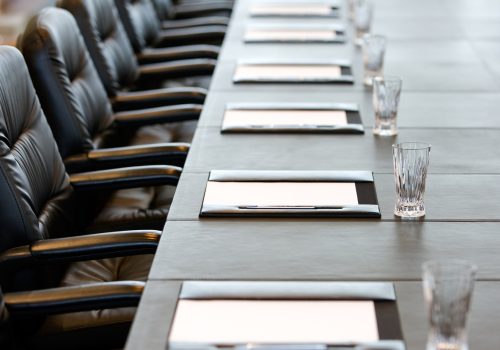The North-South divide is growing. Can a new Bretton Woods help?
During her April 13th, 2022, speech at the Atlantic Council, Treasury Secretary Janet L. Yellen made more than a dozen references to Bretton Woods, the International Monetary Fund (IMF), the World Bank, and multilateral development banks. When asked by Financial Times (FT) journalist, Rana Foroohar, about the nature of “new institutions” in the global economic and financial governance, Secretary Yellen responded by saying “while I feel they should play an important role going forward, they need to be modernized to address problems…that are really challenges that we face today and these institutions were not really designed to address.” A week later, Colombia’s Minister of Finance and Credit, José Manuel Restrepo, echoed the same concerns regarding the Bretton Woods System and called for “building a new Bretton Woods” that is stronger and more inclusive in response to global challenges, such as the provisioning of global public goods, with vaccines as case in point.
We must celebrate Secretary Yellen’s and Minister Restrepo’s remarks on modernizing the Bretton Woods Institutions (BWIs), namely the World Bank and the IMF. This is especially critical in this juncture in time when the fault lines between the Global North and the Global South are growing. Just look at how countries voted on the United Nations (UN) resolution suspending Russia from the Human Rights Council. Placing that map (Figure 1) next to the map of countries that are part of China’s BRI (Figure 2) highlights that growing rift.
Besides Russia and North Korea, the remaining 22 of the 24 UN members who voted against the resolution are all part of China’s Belt and Road Initiative (BRI). Moreover, 49 of the 58 who abstained from voting are also part of the BRI. While little more than half the countries that voted in favor of the resolution are also countries that have signed a BRI MoU with China, most of them are in Eastern Europe —which are concerned about Russia’s westward expansion— and in Latin America, which have more to benefit from their relationship with the United States than with China.
Substantial and meaningful reforms in the BWIs can help reduce the pace of the growing division between the Global North and Global South. One area of reform is the governance and decision-making structure of BWIs. There is no reason why the average citizen of high-income economies should have 10 times more voting power and representation in the boards of BWIs than an average citizen from the rest of the world (Figure 3). If BWIs are to remain as the main vehicle for global economic and financial multilateralism, their member states need fairer, though not necessarily equal, representation in these institutions. The Global North, headed by the United States, must welcome —and in fact lead— the reforms to result in such an outcome. This would help rebuild trust in these institutions, reinvigorating global multilateralism, and helping them achieve their objectives of financial stability, inclusive growth, and shared prosperity.
Another area of reforms in BWIs, among many others, is climate change. For this to happen, the Global North must acknowledge that in per capita terms, many of the top CO2 emitters are from their camp (Figure 4). For example, an average Canadian and American emits twice as much CO2 as an average Chinese, even though about one-third of all energy intensive global manufacturing is taking place in China, as compared to 18% in the United States. Furthermore, fourteen countries in the Global North are among the top 30 CO2 emitter per capita, while India is not even among the top 100. In other words, 12% of the world’s population residing in the Global North countries is responsible for around one-third of all global CO2 emissions. Their CO2 emissions negatively impacts the lives of the world’s most vulnerable and the poor, the vast majority of whom reside in the Global South. This provides a golden opportunity for the BWIs and its largest shareholders from the Global North —such as the United States— to support and lead the climate mitigation and adaptation efforts. They could thereby improve the wellbeing of hundreds of millions in the Global South and regain their trust in BWIs.
In her remarks, Secretary Yellen also hoped that the world would not “end up with a bipolar system” and highlighted the “need to work very hard and to work with China to try to avert such an outcome.” One certain and effective venue for such cooperation is within the framework of BWIs. A more effective and inclusive Bretton Woods system and economic and financial multilateralism will reduce the probability of a bipolar system. However, this requires substantial reforms in BWIs to increase the voice of Global South in these institutions and to equip them with the mandates, tools, and resources needed to address today’s pressing global challenges and especially those challenges that are impacting the Global South disproportionately. The Atlantic Council’s newly launched Bretton Woods 2.0 Project is excited to lead the way in this effort because, as mentioned by Secretary Yellen “we ought not wait for a new normal. We should begin to shape a better future today.”
Amin Mohseni-Cheraghlou is a consultant with the GeoEconomics Center and an assistant professor of Economics at the American University in Washington, DC.

At the intersection of economics, finance, and foreign policy, the GeoEconomics Center is a translation hub with the goal of helping shape a better global economic future.
